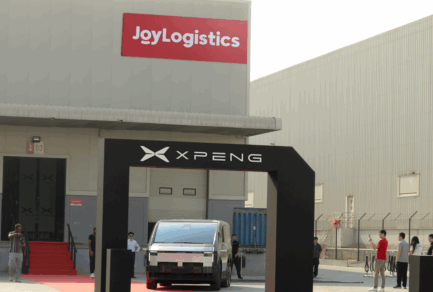Apr 1, 2021|
Head of JDL AI: Taking the leap from academia to industry
by Kelly Dawson
As head of JD Logistics AI and Data Science, Dr. He Tian is driven by the knowledge that his work has the potential to impact millions on a daily basis.

In his previous work as a professor pioneering research in the areas of AI, IoT, wireless networks and more, a published paper that received 3,000 citations would be considered a “phenomenon,” he recalled in a recent interview at JD headquarters in Beijing. “In the past, I explored innovative ideas and tried to dig into the unknown, but those things didn’t necessarily create value in the practical real world,” he said. “Now that has changed completely.”
“At JD, when I write a piece of valuable code that shaves off one minute of delivery time for couriers carrying packages to customers, that one small line of code may save all of JD’s couriers 400,000 miles of distance over the course of a year and make millions in profits over time. Considering the large scope of all the work our team does, you can imagine how much change we can make on a countrywide scale. That’s a different kind of influence.”
Dr. He is a veteran in IoT, an ACM (Association of Computing Machinery) fellow, and has the prestigious designation of being an IEEE fellow for development and optimization of networked sensing systems. He is also the recipient of the National Science Foundation (NSF) CAREER Award and named as China NSF Outstanding Overseas Young Researcher.
In his new role at JD, Dr. He is in charge of smart logistics algorithms, data products and map services, leading the team to explore the research and application of AI, focusing on the core technological breakthroughs in the fields of product digitalization, algorithm operation, time-series forecasting, large-scale scheduling, low-cost measuring, intelligent positioning, and more. This work will also be part of JD’s aim to open commercial applications for more external clients.
JD’s business model and the reach of its massive logistics network was a significant factor in his decision to join the company, he said. Covering almost all districts and counties in China, JD’s logistics network includes more than 900 warehouses with an aggregate gross floor area of more than 21 million square meters, and more than 190,000 delivery personnel. The company is entitled to over 4,400 patents and computer software copyrights, of which those related to AI span from warehousing to sorting and delivery.
JD’s resources also mean that Dr. He will have the ability to explore cutting-edge technologies with a team of truly talented people. “When I was a professor, I worked with 9 or 10 PhDs. Here I work with 400.”
Academic theory meets industry
In the past ten years, China’s express delivery business’ volume has surged from 3.67 billion units to 83 billion units, a volume so massive that the world’s brightest minds are now tackling the intricately detailed mathematical formulas required to keep the business running smoothly. Here is where abstract AI theory meets industry—and where Dr. He’s work is absolutely essential.
AI is now transforming logistics by leveraging the power of Big Data, of which JD has a massive volume, thanks to its more than 471 million active users and associated logistics needs. As a result, JD is able to ease labor conditions for couriers and warehouse workers, significantly improve efficiency and cut costs. For example, as a result of JD’s AI-powered unmanned warehouse, the company has been able to lower the inventory turnover days to 33.3, and has decreased its fulfillment expense ratio to 6.5%, an industry-leading level of operations efficiency, according to JD’s latest earnings report.
Dr. He is excited by the potential of these kinds of projects to transform the industry. “The unmanned warehouse of JD Logistics is undoubtedly a model of integrating industries and research that requires both theory and domain know-how,” he said.
This intersection between theory and the real world is where he believes he can add value. “I motivate algorithm engineers to dig into the actual work, to more deeply understand the operation rules of the business, and then examine the problems we should solve. Our engineers can now apply theoretical models to solve problems with a good business sense.”
The work of blending theory and real-world scenarios requires both IQ and EQ, a balance he is trying to apply as he learns the ropes at JD, he said. For example, since joining the team in February 2021, Dr. He has made conversation a central part of his learning process. While some executives may have relied on written reports or spoken accounts delivered by representatives of various teams, Dr. He believes that first-hand accounts are essential to understanding the business and how he can make a difference. Among the people he has spoken to or will speak with in the coming months are warehouse workers, couriers, truck drivers, operations managers, technicians, researchers, and more.
“Before I joined the industry, I thought of technology as ‘super.’ But after I joined the industry, I now know that technology alone cannot solve everything,” he said. “You need to have the right balance between technology and the business, and the people.”
Dr. He is a newcomer to the business world, and also a relatively new returnee to China. In fact, his journey to JD has straddled various industries and continents, a background that has been shaped by a life-long sense of avid curiosity.
Curiosity as a Driving Force
Born in Changsha, a middle-sized city in southern China, He originally stumbled into science because he was good at it, he recalled with a laugh. “The truth is back then I liked playing video games more than school.” At the time, playing games and exploring the world felt more exciting. It wasn’t until later that he realized that “school” might actually be an avenue for exploration and a means to not only see the world, but even change it.
He later studied pile computing at the Institute of Computing Technology of the Chinese Academy of Sciences, and received a master’s degree that then propelled him to apply to study abroad at the University of Virginia, where he received a PhD.
“By nature, I am curious about a lot of things,” he said of his desire to go to the US. “I wanted to see how everything worked in another country. I always want to know everything, not just in my own domain.”
In the US, He was fortunate to have a good mentor at the university, an experience that then shaped his desire to inspire his own students when he later became a professor at the University of Minnesota. During his time in academia, he published more than 300 research papers, and won seven best paper awards at international academic conferences.
“I always encouraged my students to keep up the cutting-edge research,” he said. “I told my group, ‘Never follow.’ In academia, there’s only ‘first,’ never ‘second’… unlike in the business industry, where the first company to take a risk is often in danger, while the second can rely on the experience of the first.”
Transitioning to Industry
In fact, Dr. He never expected to take the leap to business. But when he realized that working for a major Chinese tech company would mean that his innovative ideas could be applied to real-life scenarios to create enormous influence and impact, his thinking changed. Additionally, he was driven by that old companion: curiosity, he said with a laugh. “I wanted to learn how it all works,” he said.
Taking that leap meant relocating back to China, a transition that also excited him.
“Being here is faster, more exciting, and there are bigger opportunities,” he said. “In the US, the life pace is slow. It might take ten years to build a bridge. Here in China, it might take one night.”
As China’s leading integrated logistics service provider, JD has far more reach than comparable companies in the US, Dr. He said. “In China we have more reach scenarios, and a wider range of cities and lifestyles that influence how logistics work. That means that here in China, we have a bigger problem to solve.”
China now leads the world in terms of on-demand delivery services within a city, supported by higher density and population, he said. This makes his work both challenging and exciting.
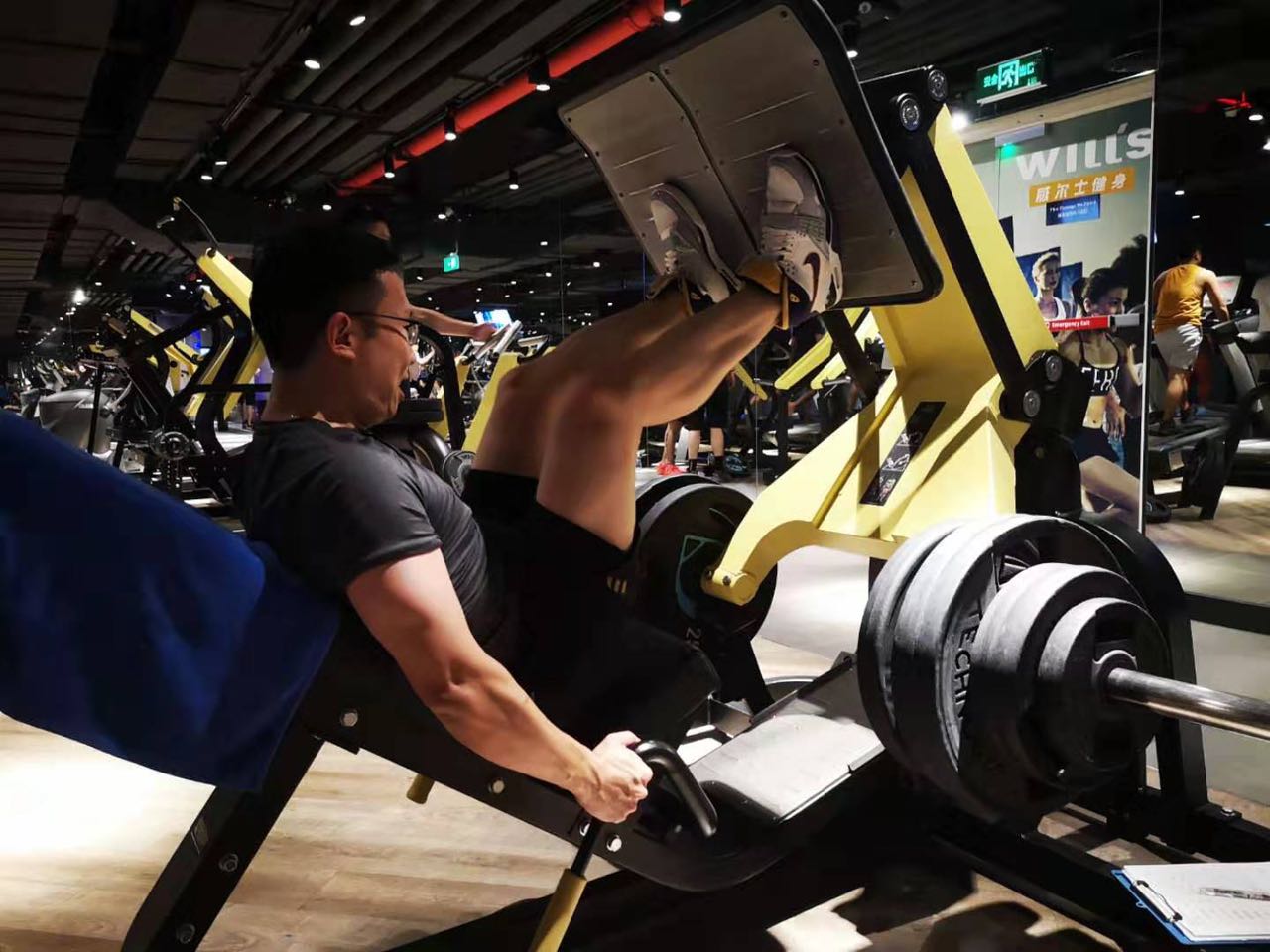
Forever learning
Although his work with JD is fascinating, the world itself remains a source of enormous inspiration. He still plays video games, he admits with a laugh, and in recent years has taken up weight-training. He reads all the time, not limiting his choices to AI and technology, but also exploring finance, economics, the arts and more. Exposing himself to new ideas and experiences will only help him do his job better, he believes.
“Once you learn a lot of things together, then you can link the and see how they interact—and you might find out new things that help push you forward to new ideas and ways of thinking,” Dr. He said. “It’s important to change the pace, go to different environments and learn new things.”

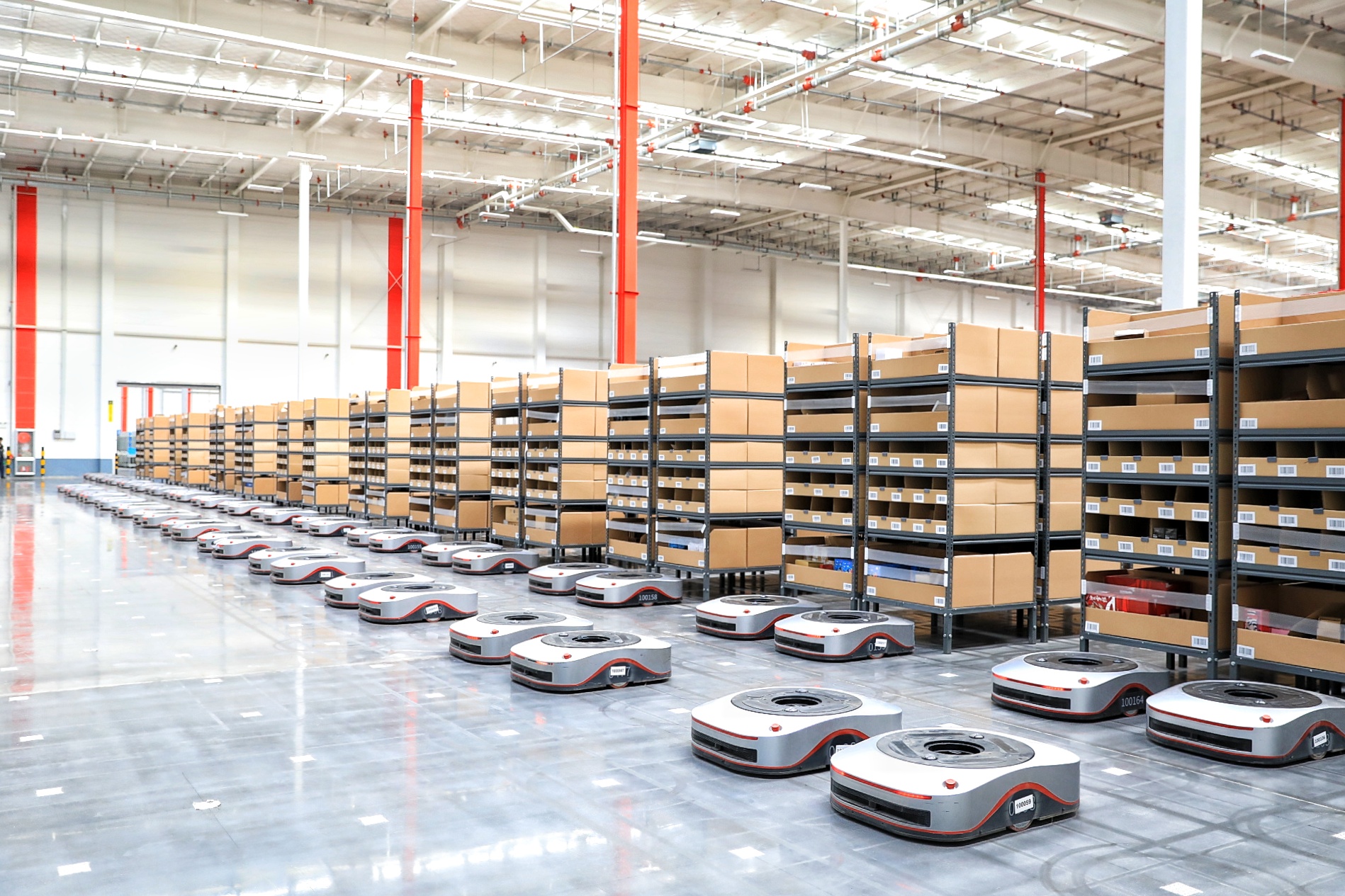



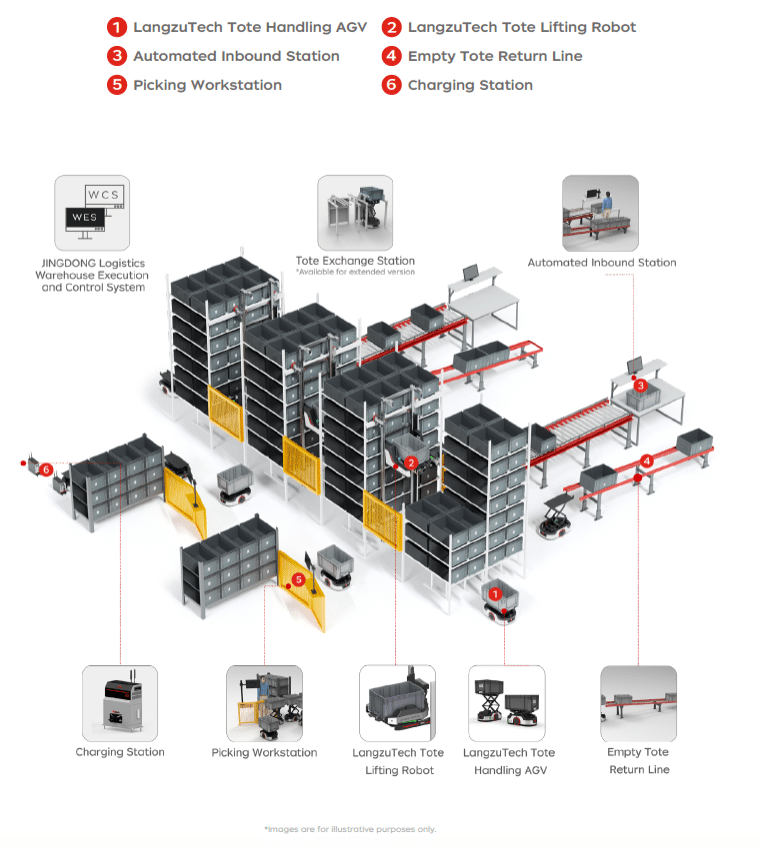
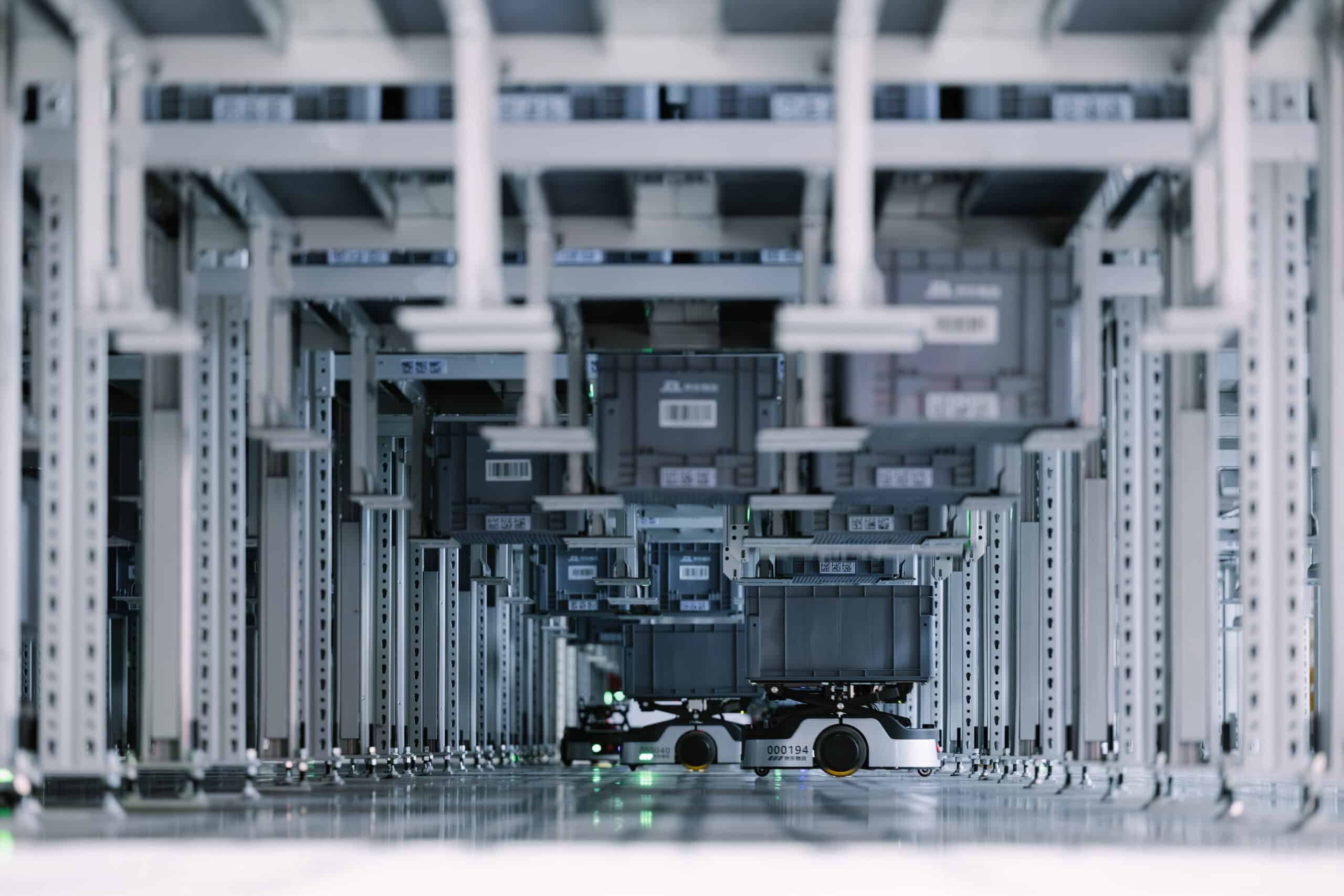
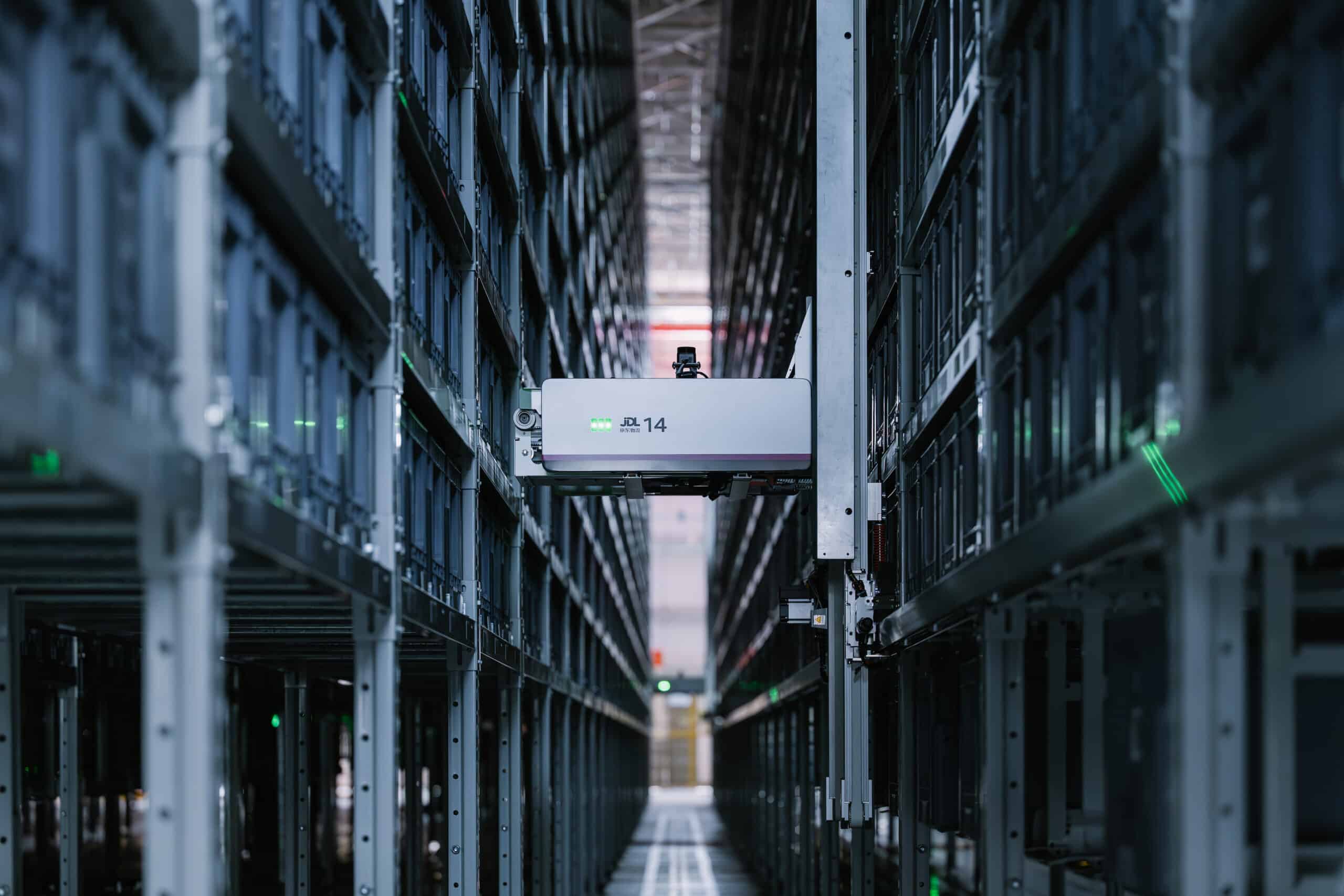
 JD Health FY 2020: Prioritizing Patients
JD Health FY 2020: Prioritizing Patients


